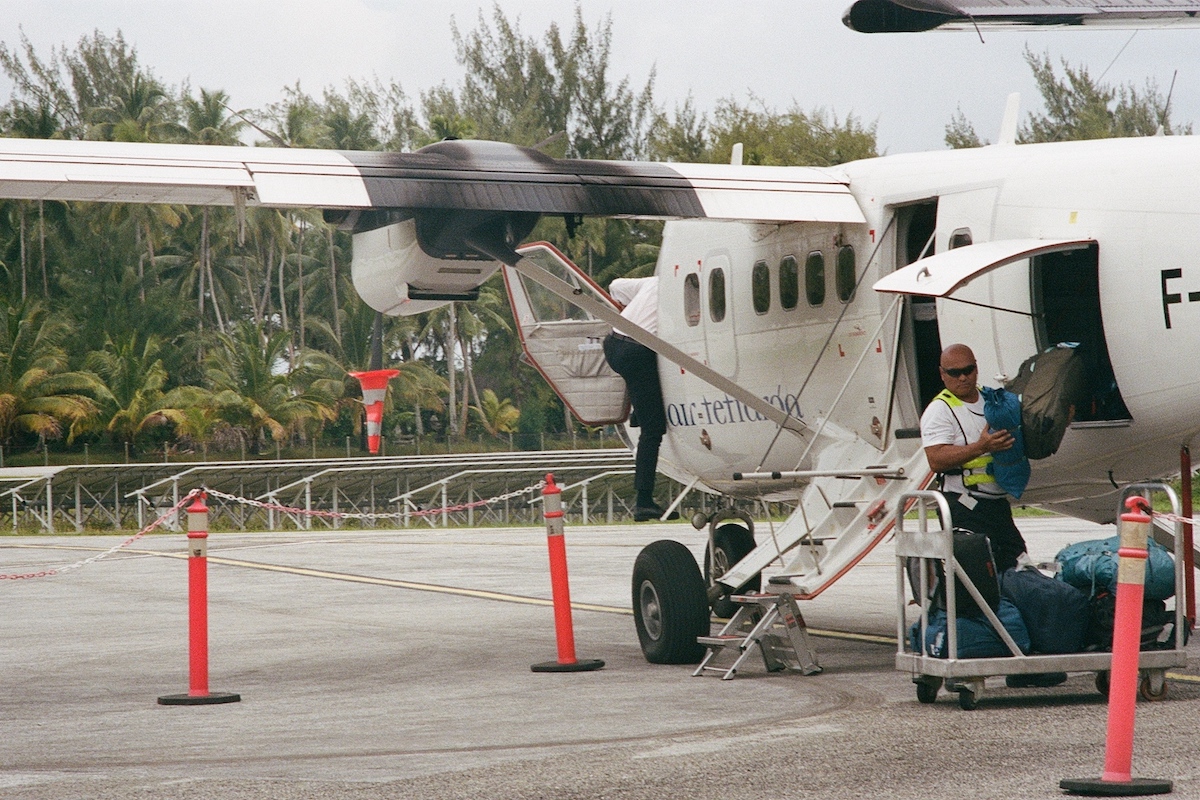
The Gump Station is host to a variety of marine and terrestrial projects involving numerous institutions and researchers.
Below you will find a small selection of past and current research projects [all projects will be listed in near future]
Moorea Coral Reef Long Term Ecological Research IV
|
|
Autonomous Reef Monitoring Structures (ARMS)
Autonomous Reef Monitoring Structures (ARMS) will be recovered after having been deployed for three years on both Moorea and Tetiaroa to compare the biotic assemblages between high island and low island reef communities. ARMS have become a standard for monitoring marine biodiversity and creating comparative baselines for marine communities particularly those associated with coral reefs, with… |
|
Ocean Acidification and Coral Reefs - Scale Dependence and Adaptive Capacity
Ocean Acidification (OA) is perhaps the most serious threat to marine ecosystems. This project and addresses the problem in the most diverse and beautiful ecosystem on the planet, coral reefs. The research utilizes Moorea, French Polynesia as a model system, and builds from the NSF investment in the Moorea Coral Reef Long Term Ecological Research Site (LTER) to exploit physical and… |
|
Biological Control of the Glassy-Winged Sharp Shooter
Invasive glassy-winged sharpshooters were successfully controlled via introduction of a species-specific egg parasite wasp in French Polynesia |
|
Current bathymetric data shows that French Polynesia has 509 seamounts in its Exclusive Economic Zone, only taking into consideration those with peaks at less than 3000m from the surface. These extreme underwater landforms are generally located in line with the archipelagos. Life around seamounts is often linked to the presence of plankton. |
|
Quantitation of Coral Fluorescence in the Marine Environment
|
|
Symbiont and host responses in reef ecosystems under rapid change
The objective of the research is to examine how environmental stressors impact the health and persistence of corals and their associated microbial communities. Coral colonies consist of an animal host as well as a resident community of microorganisms that includes bacteria, dinoflagellate algae, and viruses. Environmental changes can cause shifts in the microbial composition of corals, as well… |
|
Community dynamics of corals, algae, and microbes
|
|
Land Use Change, Ecotourism, and the Marine Environment
|
|
Sediment Metabolomes as Drivers of Bacterial Community Structure
This project takes important first steps towards applying environmental metabolomics to the field of marine microbial ecology. It will provide important baseline information describing sediment community composition across environmental gradients and insight into the chemical landscape within which bacteria reside. Lab experiments will be used to determine the effects of sediment metabolomes… |
|
Coral Tree Nursery Project in Moorea
|
|
Causes and effects of grazing behavior by large, excavating parrotfishes on coral reefs
|
|
Community Ecology of Coral Reefs of Moorea
|
|
Coral population demographics and community dynamics
|
|
Phytoplankton of Moorea
|
|
Strength of Coral-Algal Interactions in different environments
|
|
A library of genetic markers, digital images, and physical specimens for every species of plant, animal and fungus on the island of Moorea |